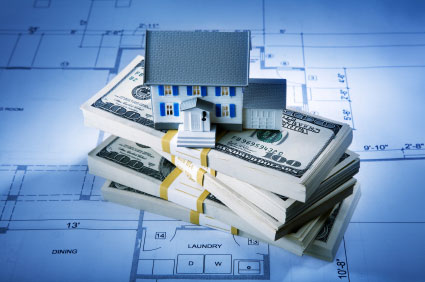Mortgage Info

Remember Interest Rates Change Daily Like Gas Prices!
We work with respected lenders in the industry and their staff that have been originating loans for years. We work as a team to get the job done right and in time for your closing.
Remember the industry standard is to use 28% and 36% debt to income ratios.
You multiply each ratio with your gross income and that is the number to use.
The 28% is for PITI – Principal, Interest, Taxes, Insurance.
The 36% is for PITI plus add all monthly debt that is on your credit report;
car payment, all credit cards.
FHA will allow 41% debt to income ratio.
There are other factors to consider like your FICA (credit) Score that would determine your interest rate.
Rule of Thumb to Re-Finance
IF YOU RE-FINANCE, ASK ABOUT A MORTGAGE THAT HAS NO PRE-PAYMENT PENALTY SO YOU CAN RE-FINANCE AGAIN IF RATES DROP FURTHER.
IF YOUR INTEREST RATE ON YOUR MORTGAGE IS ONE PERCENTAGE POINT OR HIGHER THAN CURRENT INTEREST RATES, LOOK INTO RE-FINANCING!
Here again it's all about crunching the numbers. If it costs you $4000.00 to re-finance and your interest rate on your mortgage is 7.25%. If interest rates drop to 6.25%, then the savings on a $400,000 loan is $265.84 a month. It will take you about 15 to 16 months to re-coop the $4000.00 that you paid to re-finance. If you lived in your home for more than 16 months, then you will see the $265.84 savings. After you have covered your cost to re-finance, use this $265.84 a month and apply it towards your principal. This will help pay your home off faster.
A few things happen for interest rates to drop or rise. The 30 year mortgage interest rate is determined by what the 10-Year Treasury Note is trading (selling for) in Chicago. If the T-Note goes up in price, then interest rates go down. If the T-Note goes down in price, then interest rates go up. The T-Note has a yield also. When the yield goes up, interest rates go up. If the yield goes down, so do interest rates. This is what should happen fundamentally, but sometimes this does not happen.
The main role of the FED is to watch inflation & economic growth. About every six weeks the FED has its meeting and goes over all the economic data to see what direction they should go on cutting or raising rates.
The Fed Fund Rate is the rate that banks charge each other for overnight loans. “Why would one bank borrow cash from another?” you ask. The Fed can require banks to keep a certain percentage of assets in the form of cash on hand or deposited in one of the Federal Reserve banks. From time to time, it will establish a required ratio of reserves to deposits; when this ratio is increased, more cash must be kept in the vault at night, making it more difficult (and expensive) for funds to be acquired. When the reserve requirement is lowered, the money supply is loosened; because less cash has to be kept on hand it becomes easier to acquire capital.
The Discount Rate is the interest rate charged to commercial banks and other depository institutions on loans they receive from their regional Federal Reserve Bank's lending facility.
Fed Fund Rate is .0% to .25% and the Discount Rate is .75%
Interest rates will rise so will inflation during the recovery, the key is when and how much. Inflation may kick in sometime in 2011 or 2012.
FHA LOANS; In DuPage County FHA loans were unheard of. Now FHA loans are gaining market share and becoming more popular as we continue to deflate. FHA loans will allow less down payment and lower credit scores to qualify for a mortgage verses a NON-FHA Loan. Even with credit scores from 500 to 580 you may qualify depending on other guidelines. If you do have a credit score of 580 and less you are required to put down at least 10% which is still a good deal. If you go to a Bank or Mortgage Broker that does not handle FHA financing you would be asked to have 10% minimum to put down and over 680 or 720 credit score depending on the institution and debt to income ratios of 28% and 36%.
With an FHA mortgage your debt to income rations are 29% and 41%.
Another thing positive about FHA financing is the FHA appraiser is qualified like a home inspector to make visual inspections. The loan will not close until all repairs are down either by the seller or buyer. Roof and electrical are the #1 thing that an appraiser will red flag.
There are FHA 203K Streamline and Standard loan programs. The Streamline is to help pay up to $35K in repairs which you can roll this repair amount into the mortgage, its only one mortgage. Repairs have to be done with-in six months. For major renovations the Standard program is what you would use.
FHA does set limits on FHA mortgage loans, and these lending limits may differ by county and state but for DuPage, Will, Cook, Grundy, Kendall and Kane Counties its all the same. FHA loan limits for a single family are $410K, $525K for a duplex, $634K for a 3-Unit and $788K for a 4-Unit. FHA mortgage loan limits are based upon the Fannie Mae/Freddie Mac limits on conventional mortgage loans.
If you need to sell your home to purchase another it can be a challenge but not impossible. Please do not listen to what you hear, every market is different. Dave has 15 years of market research experience. He will take the time to go over all your options in your market and the market you want to be in. This is what sets KUNO Real Estate apart from the rest, Market Research and presenting it to you were it makes sense.
Keep in mind when it was a "sellers market" the seller received top dollar. When the seller purchased another home the seller paid top dollar. Now that it's a “buyers market” it's the opposite.
When you sell you may break even or lose money but you make up for it when you buy, its all relative!
If you were to sell and not purchase anything then you will lose money (equity).
For example; We helped our client purchase a home 4 years ago for $350,000 at the time the market was peaking out. Now our client is married with a growing family and in need for a larger home. We sold their home for $310,000, a $40,000 loss.
As soon as we gathered all the information we needed on what type of home they were looking for we started searching the Multiple Listing Service (MLS) and found 3 different subdivisions with the school system they wanted to be in. Each subdivision homes were selling differently than the other based on age, square feet, beds, baths and so on. We compared all options and told them this particular subdivision will give them more dollar value with the criteria they were looking for. We helped them purchase a home for $650,000 which sold for $825,000 four years ago.
Now you can see the $40,000 loss on their home gave a total gain of $135,000 on their new one ($825,000 minus $650,000 = $175,000 minus the $40,000 loss = $135,000). It's researching different markets to get the best value for the dollar.
Another example; We sold our clients home for $425,000 that we had helped them purchase six years ago for $525,000. Our clients upgraded to a $700,000 home which 4 years ago sold for $850,000. Our clients lost $100,000 on their home they sold but they made $50,000 in equity on their new purchase.
The key is when will prices bottom and which markets will bottom first!
This is why Dave Kuno will break down everything you need to know. He is the best when it comes to researching markets and working with numbers!
![]() Contact Kuno Real Estate Today
Contact Kuno Real Estate Today
Here in the Midwest we do not have huge market swings like they do in California, Arizona, Vegas and Florida. Please do not listen to the media.
Our area has about 4% to 6% average appreciation a year under normal market conditions which we have not had since the late 1990’s to 2001. Home values are based on economics but values were inflated due to above normal market activity that was created by non-traditional lending practices.
We are in a deflationary period due to Globalization and will continue to be for a while unless unemployment numbers start coming down fast. Interest rates staying below 4% may help the market but it goes back to job growth.
In my opinion all of 2010 will be like 2009, stagnate or deflationary.
I do not see the FED raising rates either for the rest of 2010.
Even if the Government helps create jobs we could still keep deflating. Why? Because what are these jobs going to pay? We need to create sustainable jobs were the average person is earning 50K to 100K, this will stabilize the market.
Incomes have to exceed the price for goods/services and inflation.
It will continue to be a buyers market until vacant inventory levels get back to normal.
Some areas have experienced an 8% to 15% decline and others 15% to 25% decline. The 15% to 25% declines are homes above $500,000 price range. Why? Because of sub-normal qualifying guidelines which fueled the new construction market in this price range, hence deflation. Existing homes were also affected above $500,000.
There was too much credit available.
The homes from $200,000 to $400,000 are selling and the homes up to $200,000 are selling faster.
Again we have to keep watching; investor confidence, commodities, interest rates, dollar, economic growth, GDP, employment numbers, wage numbers, inflation, deflation because of globalization and how it’s affecting our area. All this will dictate how many distressed properties that will become on the market (Short Sales & Foreclosures).
The more homes that are for sale in a subdivision and no buyers, then that will lead to more deflation in home values. If one home in a subdivision is for sale we do not care what the market conditions are home values will be stable, Supply and Demand! There is always one family looking to live in that subdivision. It's when you have a lot of homes for sale in a subdivision that lead to falling prices because sellers keep lowering their price to sell. As a buyer even if prices come down another 3% to 5% you are still ahead of the game. Especially if you buy a foreclosure! You can not lose because of the equity you have made. But again it’s all about economics in an area!
Hopefully we gave you some points to think about please call us if you have any questions.
We are here to help you succeed. We have only scratched the surface on information.
![]() Contact Kuno Real Estate Today
Contact Kuno Real Estate Today

